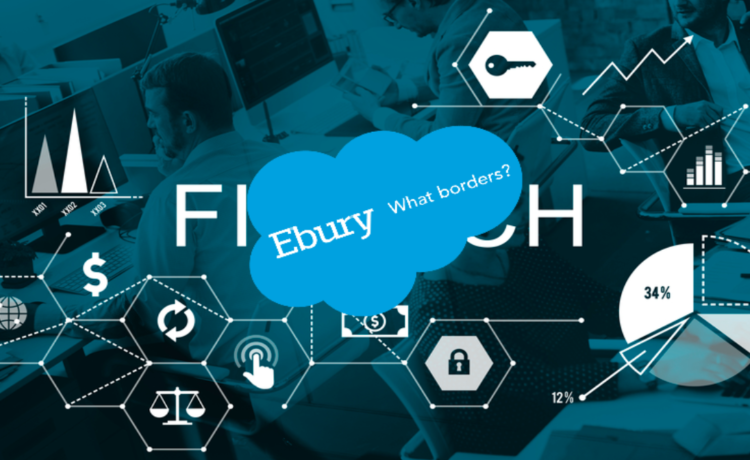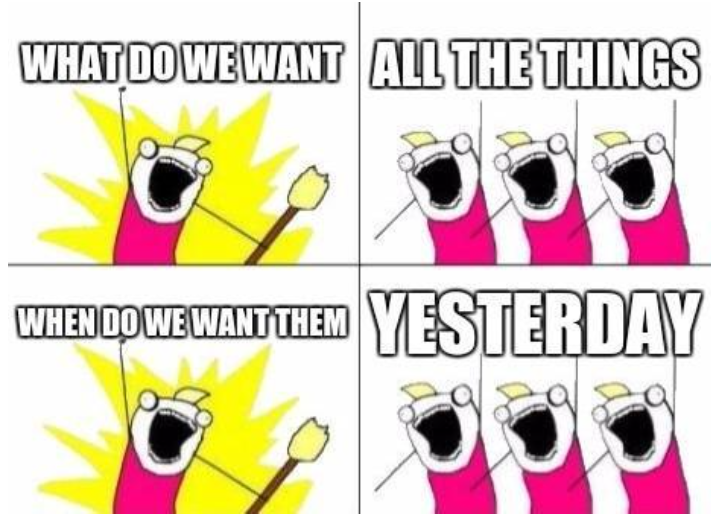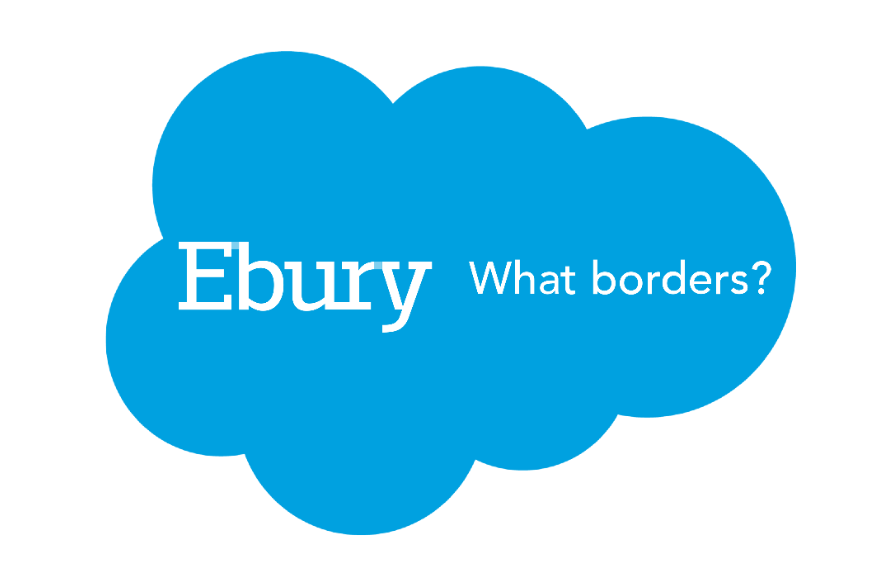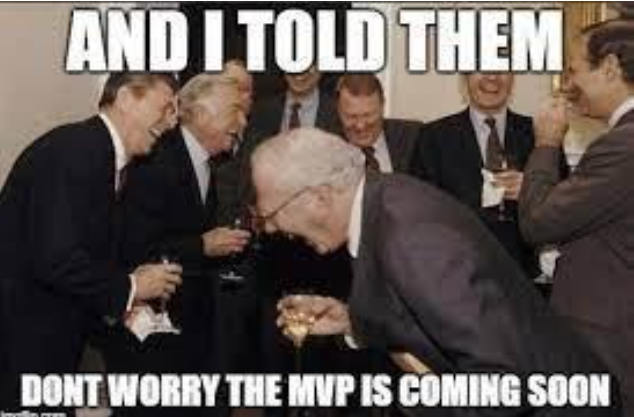
How Salesforce has helped Ebury’s growth journey and how it can work for other fintechs in the wild.
You know the drill at this point…
Technology moves fast. Very fast.
It’s one of the main driving forces of our society’s advancement, but now not only that, it seems like it’s constantly running away from and catching up to itself. The more exposure and access to new technologies we have, the more creative and demanding we all become. We want faster, nicer, prettier, more efficient, more convenient, no hassle, no hustle…

Fintechs are basically the IT Girl these days, so it’s really no different. With the expansion and innovation on technology in recent years, the way it has changed how we go about pretty much every aspect of our lives and how we have become dependent on it, in one way or another, it’s natural that the financial industry would become part of this fever. And there is so much ground to uncover and explore too.
Yet, fintechs are in a particular position because they are in the business of dealing with something that is very sensitive to all of us: MONEY! The level of importance one gives to money and finances may vary from individual to individual: some will care a lot about it, some not that much (for example, if they have loads), but no one will not not care at all. Especially in this day and age when not having some money is almost not an option in order to exist with a little dignity.
We are all becoming a bit smarter with our money, a little more savvy with the way we spend, save, move and multiply it. Therefore, we rely more and more on fintechs to give us the tools to manage our finances, with more ease and convenience, quicker responses and even quicker actions. But there is still a lot we don’t fully understand; there is still a lot the industry itself doesn’t fully understand and it’s trying to figure out. As customers we are trapped between the excitement of new things that technology usually brings, and the dread of the terrible unknown.
Fintechs came to help suppress many gaps that traditional banking and financial services were not addressing. Obviously, convenience and ease-of-use easily come to mind, but there are other aspects equally (if not more) important:
- accessibility – a variety of options offered to the customer a few clicks away (opening accounts, applying for credit cards, applying for loans, insurance, investing, etc.), some of these options used to be very exclusive to a certain type of customer;
- transparency – information is exchanged more easily between parties, real-time tracking of transactions, less red-lining;
- speed and efficiency – processes don’t have to be painfully long and slow, as everything is done using the internet, approval rates are much higher, transactions are processed and finalised almost instantly ensuring the cash flow for customers, especially when dealing with small businesses with limited capital;
- cost reduction and pricing – each innovation in financial technology comes with the potential of reducing costs for the business, by introducing automations, reducing physical presence, for example, and these savings then can be passed on to the customers in the form of much lower rates, than the ones applied in traditional banking services.
With a myriad of options out there, customers no longer have to be super conservative with their choices; regardless, they still want to be able to build trust with the businesses they deal with, considering they will be “handing” over their money to them.
So… what’s up with Ebury and Salesforce?
Ebury + Salesforce

Ebury is a fintech company that provides financial services. ¯\_(ツ)_/¯… We offer solutions in foreign exchange, international payments, trade finance, white-label financial services, etc., focusing on empowering businesses and organisations to remove barriers across the globe.
Salesforce is only the biggest customer relationship management (CRM) platform in the world. It focuses on bringing businesses closer to their customers, building relationships and streamlining processes in order to increase sales, improve customer satisfaction and boost profitability.
It’s not too difficult to imagine why Ebury would want to join forces with Salesforce. It’s actually a pretty straight-forward relationship: Ebury has certain goals and needs, and Salesforce can satisfy some of them.
But the company wasn’t built in a week. Over the years it has grown, in size, in numbers and in influence; it has also become more ambitious. Over the years, the goals and expectations have changed. Salesforce has changed too. Just like the rest of everything.
When Ebury was STARTing UP

Startups…
What’s on the up is really the ideas, the hype and the amount of work that needs to be done. The rest of it normally takes a while to catch on.
Back in 2014, when we started considering Salesforce as an option, Ebury was still a small company, trying to find its footing. At the time, we were using a different CRM (a sweet one), the technology was not the most developer or user-friendly and it was very hard to customise the tool to fulfil our business needs.
But at this point, the company’s focus was put more on the development of its products/services and on growing the business, solidifying its position on the market. It did not lie heavily on what kind of processes, operations would be put in place and what would be the best tools to develop and support those. The main goal was to use something that could help us turn things around quickly (implement quickly, get value quickly). The team was also very small (2, 3 people max.), and did not have much experience with CRMs.
This is where Salesforce enters the scene for Ebury. It was perfect, because it offered options to eliminate many of those problems:
- a tool that is easy to understand, to develop and to use;
- comes with standard built-in features, not everything has to be built from scratch;
- it is highly customizable, allowing the customers to shape it in whatever way they want;
- has 3 releases a year, which means that it is constantly being upgraded, introducing more functionality and more innovation everytime;
- has a vast community composed of people that work and experience it on a daily basis, also using it to share knowledge and collaborate with peers.
By leveraging these aspects, the team was able to get up to speed relatively quickly, learning the ways of the platform, as well as delivering on it at a fast pace.
At the beginning, Salesforce was used purely for sales management processes, some automation and a few of our early days client onboarding qualification processes. Many of the services, flows, integrations, etc. built during that time, became the foundations of our business and have helped our growth and expansion. Some of them are actually still standing today, even though at this point in a different state.
Now Ebury is a GROWN UP
Between 2014/15 and 2018, not much changed in the situation of the company. Salesforce is in use by a small number of users (all of them admins…#sendhelp), for a small number of processes, providing some value for sure, but still, capabilities are far from being fully explored.
Ebury’s mission is still very clear: to become the global leading platform for B2B cross border trade. The company continues to grow year on year, continues to gather momentum on the market, attracting more clients and more attention from investors. One of the fastest growing fintechs in Europe.
Towards the end of 2018, is when things start to really shift, especially for the Technology side of things. We got a new VP of Engineering, the department is expanding and we are starting to become a little more structured (shedding off some of that start-up skin).
Fast-forward to 2019, Santander invests in Ebury, providing the company with the fuel to really step on the gas and move onwards and upwards. Now, backed by such a powerful partner, Ebury has the bandwidth to invest in its products, in its technology and, more importantly, in its people. The focus of the company changes slightly as well; yes, we want to continue to grow our customer base, our revenue, our products and we still want to deliver things faster. But we want to do it in a more scalable way, with technology behind it that is robust and reliable.

The company starts investing more in its tech, bringing in skilled talent, to help us get to the next level, looking for ways to make our products and services more robust and therefore more attractive, but also looking at ways to improve our capacity of response to the demands of the business, by reevaluating our internal processes and becoming more efficient.
Ebury and Salesforce’s affair grows in tandem with the rest of the company. More users are getting on the platform due to the increasing volumes of business, and high volumes of clients and activity mean that day-to-day operations require smarter ways of processing. To build them we need more people and more expertise. The team, which used to be a small team, grows a lot with the addition of more members, and helps with the expansion of the platform.
Salesforce went from being a ready-to-go tool that was helping the company get off the ground with some basic operations, to becoming an integral part of the company’s technology stack. It’s used to manage the relationship between Ebury and its clients on many different levels. For example:
- the whole client life-cycle is managed in SF, starting from when the client is not a client yet (only a prospect), to when it becomes one and even after it stops being a client;
- the process of onboarding a prospect and effectively making it into a client is initiated and largely handled through SF;
- the administration of the commercial side of the relationship is also in SF, things like the products a client has, their credit lines, trading, etc.
The platform is also connected to the other key systems, such as the transactional system (where all the real financial stuff happens) and the client portal (which the client uses to manage their business with Ebury), creating a network of information that flows freely, much more structured and more complex.
To the fellow fintechs in the wild
Every company needs to start somewhere. There is, hopefully, a good disruptive idea, a good market to sell it to and people with vision and drive to move things forward. It’s important to find the right technology that will help the company at a specific point in time, under specific circumstances to reach the next level.
What a company wants at the start is to make an impression with what it has to offer and grow at speed. Rapidly expand the customer base, whilst continuously iterating over the product to make it better. This is the main focus. Your most vital team at this stage is probably your Sales Team; they will buy time for the company to build on the products. You will need a large pool of potential customers, a sales funnel, and that means some kind of CRM, to manage and convert them into actual clients.
Salesforce CRM will pretty much work out-of-the-box, with little configuration. It won’t fall over, it’s secure and the native reporting capabilities will be enough to help support the Sales Team operations. Plus, the platform has 3 releases a year, bridging new interesting features to explore. Ideally, you want to have someone hands-on to manage all this.
The company will need to think carefully on how they want to do things… Do you want things done quickly and deliver value from the get-go? Do you want to do a lot of work upfront that could pay off down the line? How much money can you spend? Where do you want to spend it? And when?
With Salesforce, you can opt for a tactical solution or a more sophisticated solution. If you have the financial means to buy best in class applications, you can do it; if you are concerned about committing to long contracts for expensive solutions, then consider doing development in the platform. In reality, you will likely do a little of both: buy some, build some. But before making a decision for either, think beyond the value that you will have in the short term. Think about what you envision for the future and how the decisions that you make now could help you get there in the long run.
Now, you will likely need people to do stuff, regardless. One of the great advantages of this platform it’s the variety of professionals that you can have at your disposal, through its 3rd party relationships. If a company wants to get a project off the ground quickly and avoid the work of having to building everything from scratch, whether it is through AppExchange partners (building 3rd party apps for SF) or consultancy partners (building bespoke solutions on SF), there are a lot of options, with varying levels of expertise and different services, that the company can leverage. Another big plus of Salesforce is the Community itself, made by Salesforce people (developers, architects, admins, customers, partners, employees, learners, advocates, gurus…) who actively contribute in exchanging ideas, sharing knowledge and solving problems across the world.
Of course, not all is sunshine and rainbows… There are some downsides: first, and perhaps one of the biggest, is that it is an expensive product, no 2 ways about it. Adding up costs of additional resources, like 3rd party product licensing or consultancy services, it can become a heavy burden. Not everything that shines will be gold, so try not to spend loads of money and build in line with your company’s growth. Second, it’s still a 3rd party, a dependency; no matter how flexible the tool is, there’s still going to be some limitations to what you can do on it.
However, it could still be a smart move: investing at the start to lay the groundwork to develop on top, in the future.
WRAPping UP
Salesforce offers a really good CRM solution: a stable platform you can build on, developers you can hire, partners you can work with and 3rd party apps you can plug in. Investors will appreciate that you have it and most of the companies in their portfolio will have it too. You can even piggy back a bit off of the Salesforce Marketing reach, do some case studies, go to their events, share your growth story. It’s one supplier to manage, if you build a good relationship with the Account Manager on their side, they can make your life easier.
Keep it simple, don’t go too crazy. Start small and basic, understand what you need and want first, then add the layers. You will be fine!
The fin… of this post.
